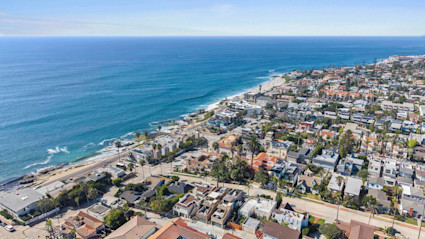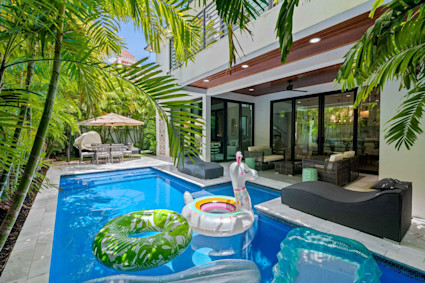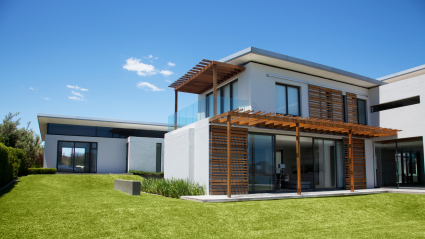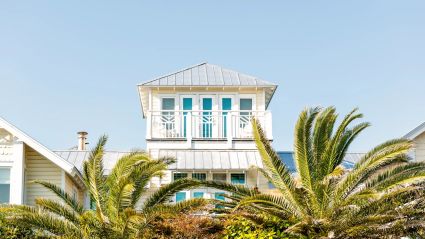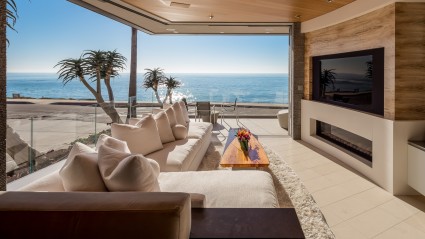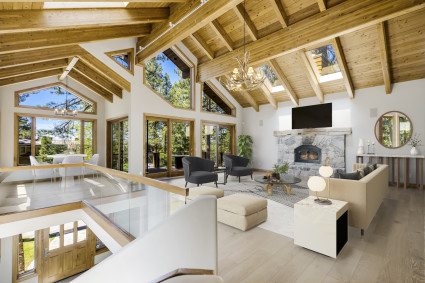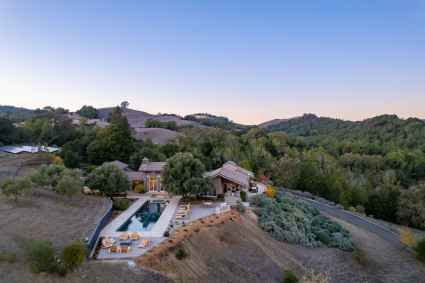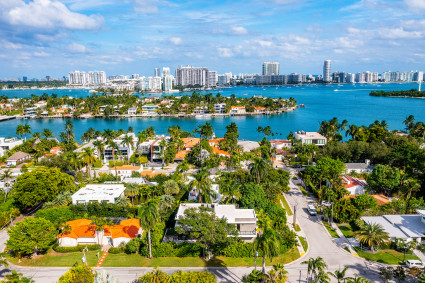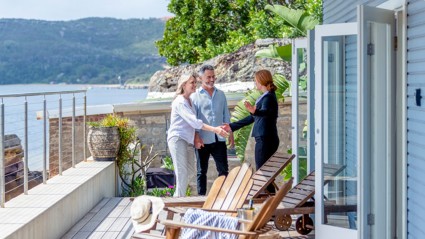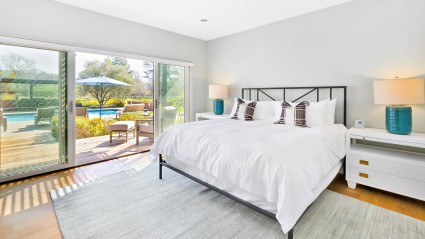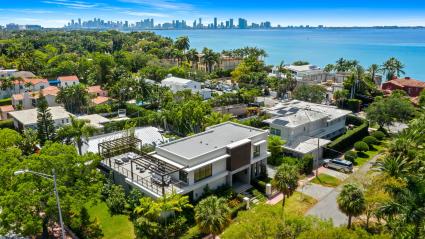Big Sky vs. Jackson Hole: Which ski town is right for you?
Picture-perfect destinations like Big Sky, Montana and Jackson Hole, Wyoming are coveted ski towns with sweeping views, iconic slopes and close-knit communities. With two strong options to choose from, it’s hard to decide between Big Sky vs. Jackson Hole for your dream residence. The decision comes down to compatibility. These two mountain towns share many characteristics, but also vary in size, amenities, slope options and atmosphere. This comparison guide breaks down each resort town’s unique personality, so you can decide which one works best with your lifestyle. A quick overview: Big Sky vs. Jackson Hole Jackson Hole and Big Sky are popular The popular town caters to urban-minded nature lovers, and its center exudes deeply rooted Western culture at every turn. Annual attractions include the Grand Teton Music Festival, Jackson Hole Rodeo and Old West Days for a snapshot of local mountain life. The quaint yet lively town is best for a private, relaxed second-home experience, located 50 miles south of Bozeman Yellowstone International Airport. However, Town Center and Mountain Village offer year-round dining, shopping and entertainment options. Does Big Sky or Jackson Hole offer better skiing? When considering Big Sky vs. Jackson Hole skiing amenities, compare the resorts’ acreage, number of lifts, tourist densities and overall cost. Big Sky is more varied and vast, over double the acreage of Jackson Hole. Big Sky offers a convenient network of lifts and a scenic tram, while Jackson Hole shines with challenging runs that sometimes require backcountry treks. Both receive over 400 inches of annual snowfall and are world-renowned as top Big Sky Big Sky Resort is known for its variety and called “The Biggest Skiing in America” for good reason, boasting over 300 official runs on 5,850 acres of skiable terrain. The Lone Peak Tram lifts passengers 11,116 feet high, and a network of 39 additional lifts provides easy access to other runs in the massive range. The slopes are rated for all ski levels, from beginner-friendly routes like Lower Morning Star to challenging double black diamond runs like Big Couloir. The trails tend to be less crowded, and you can expect more than one acre of terrain for every skier, lending to a peaceful, wait-free experience. Jackson Hole Jackson Hole Mountain Resort is nestled in the steep slopes of the Teton Range and stretches about 2,500 acres, with 133 named runs and comprehensive backcountry access. Only 10% of the resort’s trails are beginner-friendly, and there are only 13 lifts. The Aerial Tram climbs 10,450 feet in less than nine minutes and leads to the resort’s most famous runs. Ambitious runs bring ambitious crowds, so you can expect longer lines and heavier trail traffic during peak season. Teton Village is in the heart of the resort and is especially busy, but popular despite the crowding for advanced skiers chasing unforgettable descents into scenic powder drops. Year-round activities Whether you’re living in Big Sky, Montana, vs. Jackson Hole, Wyoming, you can expect robust activities beyond the ski slopes. Both destinations host annual festivals, scenic tram views and outdoor activities like kayaking and hiking. Big Sky tends to be a few degrees cooler year-round and brings in fewer crowds, while Jackson Hole attracts tourists and has a slightly warmer summer season. The key difference between the two Big Sky Big Sky’s alpine meadows and evergreen forests bloom from late spring to early fall, best seen hiking or mountain biking through the region's 50 miles of scenic trails. The Big Sky tram offers relaxed views of Lone Mountain and its encompassing range, carrying passengers 9,024 feet to its summit. Big Sky is about an hour from Yellowstone National Park’s West Entrance, providing convenient access to the park’s most popular attractions, such as the Grand Prismatic Spring and Old Faithful Geyser. Attractions beyond the skiing season include an annual summer concert series, food and wine festival and the annual Big Sky PBR event. Jackson Hole Jackson Hole comes alive in the warmer months, offering experiences like horseback rides in the Teton mountain range to whitewater rafting adventures down the Snake River. Snow King Mountain is a popular summer attraction for families. The ski hill transforms into an adventure park that offers a roller coaster, zip line and mini-golf. Town Square hosts weekly farmers’ markets and outdoor concerts that showcase the destination’s Western traditions and crafts. The Jackson Hole Fall Arts festival features local creatives, food and music over the span of 12 days each September, with more offerings comparing Big Sky vs. Jackson Hole in the summer. Jackson Hole is about 10 minutes from Grand Teton National Park and about an hour from the south entrance of Yellowstone National Park. However, commutes can reach 2 hours during high season. This side of the park is ideal for exploring the Lewis River corridor and wildlife spotting. Community and culture Community aspects in Jackson Hole vs. Big Sky break even in terms of outdoor recreational access and appreciation, but differ in many other ways. Jackson Hole is about three times larger in population than Big Sky and has more rooted cultural gatherings and festival lineups. Big Sky is home to just under 3,000 locals and therefore has a retreat-like, close-knit feel. While it draws tourist crowds and has foundational community services, it tends to be more sparse and quieter than its Jackson Hole counterpart. Big Sky Big Sky is a community-minded resort town where residents prefer to connect over long hikes and escape to the powdered slopes. Newcomers can expect a slow build on friendships, but Nightlife and shopping options are fewer than in Jackson Hole, and Bozeman offers city conveniences about an hour away. Many locals prefer the neighboring city for gathering goods, Jackson Hole Jackson Hole is home to a blend of long-standing residents, nature enthusiasts and part-time owners who value culture as much as the great outdoors. This brings residents from all walks of life to the town and fuels a variety of activities year-round. Dining and nightlife Both Big Sky and Jackson Hole evoke the vision of a cozy, classy ski lodge serving perfectly balanced cocktails and tasty, decadent bites. You can have this in the resort areas of each town. However, the two differ in a few ways. Living in Big Sky, Montana, may be a challenge for residents who enjoy the novelty of a new restaurant or bar every week, with a smaller selection. But what it lacks in volume is made up for in quality, with specialty options like dinner and stargazing at the Montana Dinner Yurt or a Sleigh Ride Dinner at Lone Mountain Ranch. Jackson Hole has options for everyone, from tapas to sushi spreads. The town hosts the Jackson Hole Culinary Festival in June and the Jackson Hole Food & Wine Winter Fest in February as a way to showcase its culinary diversity. Most nightlife venues are in the town’s downtown on a walkable stretch of streets, while others are nestled in Teton Village. Big Sky Big Sky’s smaller culinary selection is carefully curated with both upscale and casual eateries. Fine dining options, such as Everett’s 8800 and Horn and Cantel, offer farm-to-table fare, including bison short ribs and wagyu burgers. Family-friendly spots like Cafe 191 and Blue Moon Bakery provide comfort classics such as hand-tossed pizza and chicken-fried steak. For a unique experience, the Montana Dinner Yurt hosts a three-course dinner and is only accessible by a snowcat that plows through a scenic stretch of alpine forest. According to a local The most popular nightlife spot in town is Tips Up Big Sky, located in its center. You can expect shuffleboard and pool tables, live music and a diverse crowd in this cozy yet consistently busy hotspot. Jackson Hole Jackson Hole has a broader food and nightlife scene due to its size, offering a wider range of options for residents. One standout restaurant is the Steadfire Chophouse, offering a pasture-to-plate menu that serves caviar, oysters royal and a selection of fine steaks in Teton Village. Those living in Jackson Hole and seeking an affordable, less touristy option can take For nightlife, many flock to the Million Dollar Cowboy Bar for nightly live music and western charm. Cost of living Whether you settle in Big Sky or Jackson Hole, you’re joining a highly coveted resort community, so prices are on the premium end. The cost of living in Big Sky Montana is a touch more affordable than Jackson Hole, but value is on the rise in both destinations. HOA fees, taxes and frequent seasonal turnover can also increase the overall cost of living, making both locales Big Sky According to Taunya Fagan’s There’s only one major grocery store and hardware store in town, and a local mentions the high prices which frequently drive residents to shop elsewhere: “Definitely do it in Bozeman. It's even worse than the typical resort markup. I saw a dozen eggs for $19 last week.” Jackson Hole The cost of living in Jackson Hole, Wyoming, was recently analyzed in the Keller Williams 2024 Grocery and household stores are more numerous in Jackson Hole than in Big Sky. While prices are elevated, having options allows shoppers to better compare prices. Healthcare and education Big Sky and Jackson Hole each provide 24/7 emergency care, but Big Sky residents may need to travel to Bozeman for specialty services. Jackson Hole’s school system is larger and is home to a top-tier high school, while Big Sky’s district and student population remain comparatively small. Both locations offer families easy access to outdoor education and recreation. Big Sky Bozeman Health Big Sky Medical Center provides 24/7 emergency care and pharmacy services in the Meadow Village region of Big Sky. For specialized care, residents often head to Bozeman Health Deaconess Hospital, with Big Sky’s school system consists of Ophir Elementary, Ophir Middle School and Lone Peak High School. The student-to-teacher ratio ranges from 10 to 12 students per teacher, supporting more personalized learning. The district also offers experiential learning programs like Expedition Yellowstone, an immersive park experience for fourth graders. Jackson Hole Living in Jackson Hole, Wyoming, is ideal for those who want convenient, low-logistical healthcare. The St. John’s Health campus is comprehensive with full in-patient services, cardiology and surgery centers and cancer care. They also manage off-campus emergency centers conveniently located in Teton Village. Teton’s school district houses 2,800 K-12 students and has a student-to-teacher ratio of about 1:11, fostering strong classroom relationships. Housing Both cities offer high-end real estate options suitable for an upper-income individual or family. Prices stay elevated due to the limited availability of properties, although recent developments in Big Sky have increased the number of available homes compared to Jackson Hole. Both towns boast scenic alpine views, and the Big Sky Big Sky has several large-scale communities like Yellowstone Club and Moonlight Basin designed for skiers seeking quick slope access and amenities. Newer town homes can be found in Town Center and Meadow Village, which are steadily growing into more robust residential districts. The town is exclusive but more accessible for new residents than Jackson Hole. This is because of flexible local building codes and a resort tax that funds housing initiatives. You can also explore neighborhoods near the Gallatin River if you don’t mind driving 15 minutes to the slopes. Jackson Hole Jackson Hole’s larger footprint comes with a wide variety of housing options, from luxurious homes in the prestigious John Dodge neighborhood to condos in the heart of downtown. The town center is walkable, and most areas are close to cultural attractions, making it best for those who prefer a livelier pace. However, housing inventory is extremely limited in Jackson Hole, largely due to building limitations designed to protect natural wildlife areas and ecosystems. Its proximity to world-class national parks and packed peak-season travel also makes it challenging to find consistent housing without a substantial investment. Big Sky vs. Jackson Hole: Which should you choose? Living in Big Sky vs Jackson Hole comes down to your personal preferences. If you want the slow pace of a close-knit community on a rural stretch of paradise, Big Sky is best. If you want immersion into nature with access to amenities, Jackson Hole is more aligned to your lifestyle. If you’ve dreamed of
Read



